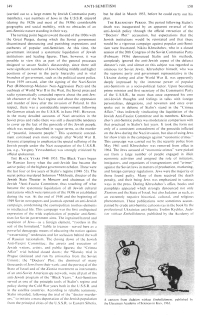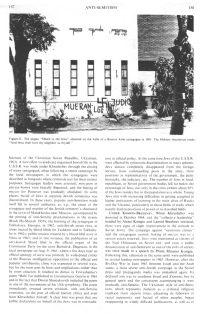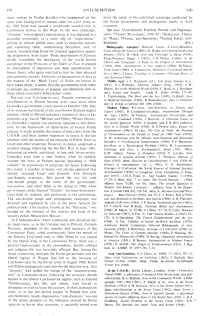Encyclopaedia Judaica
Anti-Semitism in "Soviet Union" 1917-1970
Anti-Semitism with allusions and criminalizations - the "cosmopolitan" - 1917 revolution - Stalin's NEP - purges - liquidations after 1948 - trials - Khrushchev times with propaganda, trials against economic crimes, and elimination of synagogue institutions - Brezhnev times with release and new anti-Semitism after Six-Day War
from: Encyclopaedia Judaica 1971: Anti-Semitism, vol. 3
presented by Michael Palomino (2008)







